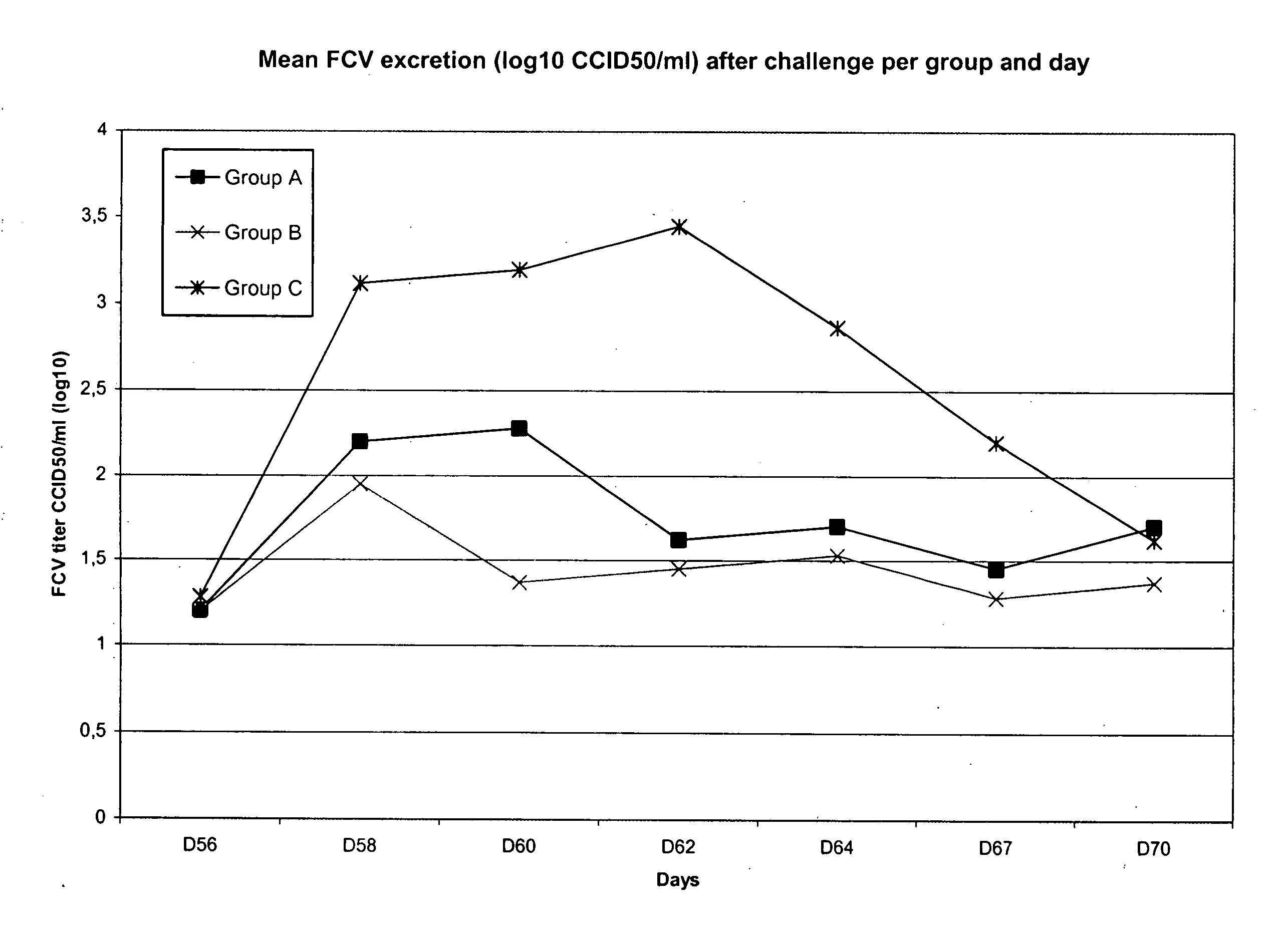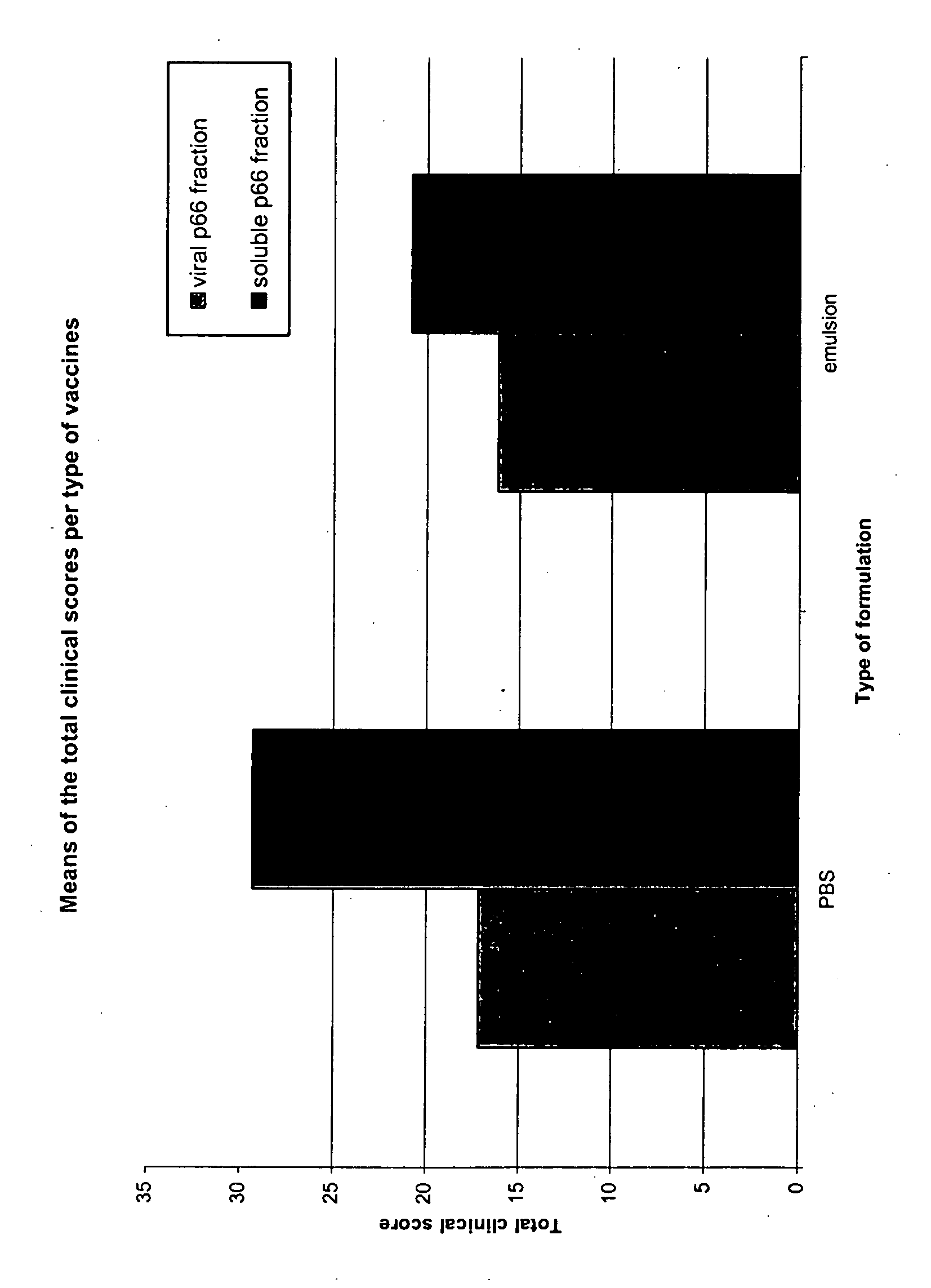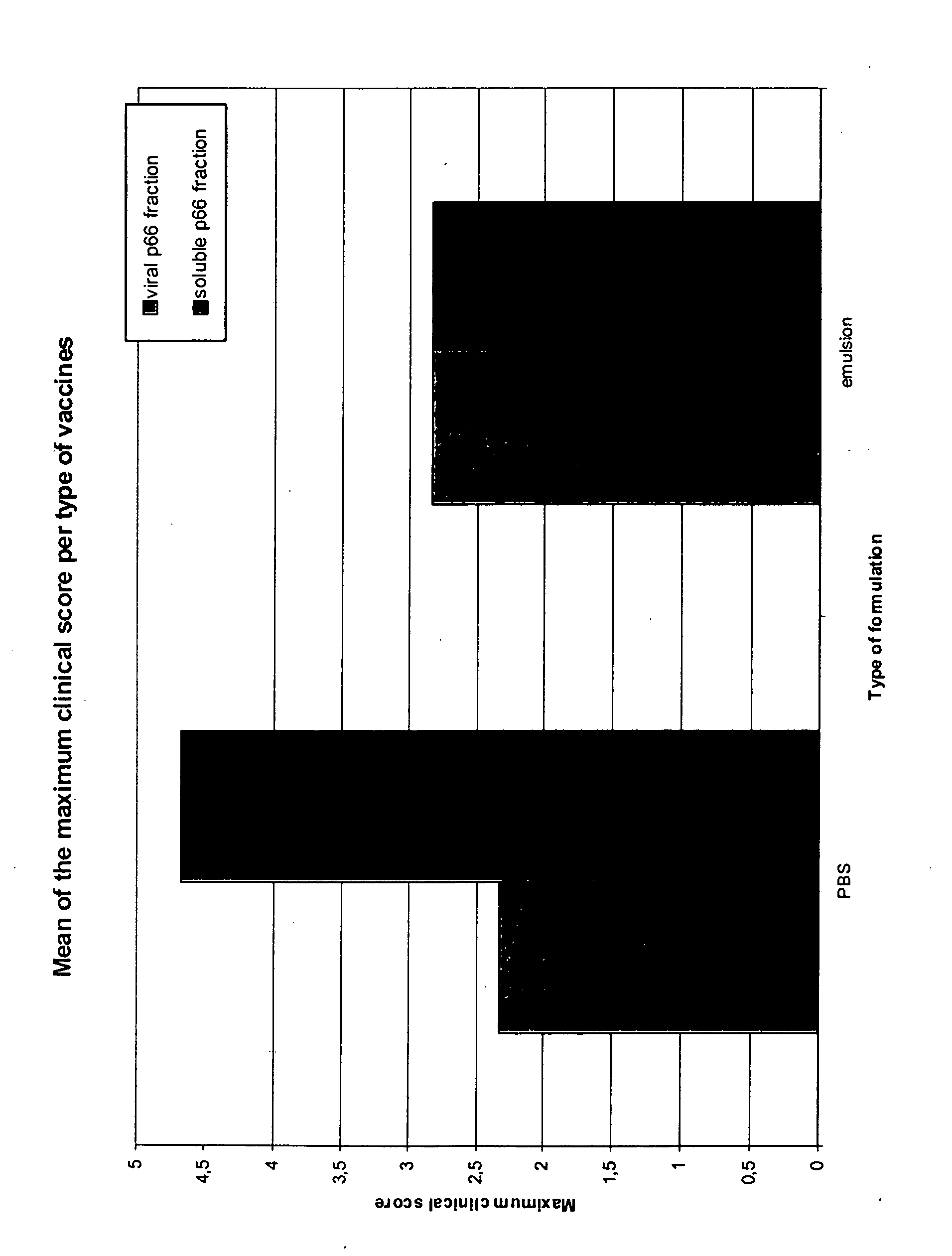Inactivated FCV vaccines
a technology of inactivated fcv and vaccine, which is applied in the field of improved inactivated and stabilized feline calicivirus (fcv) immunogenic composition, can solve the problems of ulcers on the paws as well as in the mouth, inactivated vaccines from old fcv strains at present no longer offer sufficient protection against recently isolated fcv strains, and direct or provide the skilled artisan with methods of inactivating fcv
- Summary
- Abstract
- Description
- Claims
- Application Information
AI Technical Summary
Benefits of technology
Problems solved by technology
Method used
Image
Examples
example 1
Inactivation of FCV by Formaldehyde
[0077] CRFK cells (Crandell-Reese Feline Kidney cells, accessible from the American Type Culture Collection under CCL-94) were cultured at 37° C. in 2-liter roller flasks (850 cm2) with modified Eagle's medium (MEM, Gibco BRL) supplemented with 2.5% of lactalbumin hydrolysate and 5% fetal calf serum. Three hundred milliliters of a cellular suspension in MEM medium, containing about 100,000 cells / ml, were added per roller flask. After 3 days, the cell layer became confluent. The cell culture medium was then replaced with serum-free MEM and strain 431 FCV virus was added at a multiplicity of infection (MOI) of 0.5 CCID50 / cell. The viral culture was maintained at 37° C. for 24 to 48 hours until a cytopathic effect was obtained for the whole cellular layer. The viral suspension was harvested and then clarified on a filter having a porosity of 1.5 μm and stored at 5° C. The FCV virus titer at harvest was 8.5±0.3 log10 CCID50 / ml.
[0078] The viral susp...
example 2
Stabilizing Effect of Formaldehyde on FCV under Various Conditions
[0082] The FCV 431 strain was cultured essentially as described in Example 1.
[0083] Three methods of inactivation were tested:
[0084] 1) ethyleneimine at the concentration of about 4 mM at 20° C. for 24 hours,
[0085] 2) ethyleneimine at the concentration of about 8 mM at 20° C. for 24 hours,
[0086] 3) ethyleneimine at the concentration of about 8 mM at 5° C. for 24 hours.
[0087] The viral suspension was stabilized by formaldehyde at various final concentrations of 0.1 g / l-0.5 g / l and at 5° C. (±3° C.) during 5 days. A control suspension did not contain any formaldehyde.
[0088] The FCV p66 proteins were quantified as described in Example 1 before and after selective PEG precipitation, by ELISA titration. The ELISA titers are expressed as log10 OD50.
TABLE 2ELISA Titers of FCV p66 proteinsEthyleneimine4 mM, 20° C., 24 h8 mM, 20° C., 24 h8 mM, 5° C., 24 hFormaldehydeTotal ofSolublep66 onTotal ofSolublep66 onTotal ofSo...
example 3
Immunogenicity of Inactivated FCV Virions
[0090] FCV 431 strains were cultured, inactivated and stabilized essentially as described in Example 1. This viral suspension was separated by size exclusion chromatography into two fractions containing, respectively, the virion (also named viral p66 fraction) and the soluble p66 protein (also named soluble p66 fraction). After separation, the two fractions were stored at 5° C.
[0091] A total of 12 vaccines were prepared, containing 1 ml of the viral p66 fraction diluted or undiluted (1 / 1, 1 / 4 and 1 / 16) and formulated with 1 ml of PBS (phosphate-buffered saline; without calcium and without magnesium); 1 ml of the viral p66 fraction diluted or undiluted (1 / 1, 1 / 4 and 1 / 16) and formulated with 1 ml of an oil-in-water emulsion (paraffin oil, fatty alcohol ethers and polyols, polyoxyethylene fatty acids); 1 ml of the soluble p66 fraction diluted or undiluted (1 / 1, 1 / 4 and 1 / 16) and formulated with the PBS; 1 ml of the soluble p66 fraction dilute...
PUM
| Property | Measurement | Unit |
|---|---|---|
| Temperature | aaaaa | aaaaa |
| Temperature | aaaaa | aaaaa |
Abstract
Description
Claims
Application Information
 Login to View More
Login to View More - R&D
- Intellectual Property
- Life Sciences
- Materials
- Tech Scout
- Unparalleled Data Quality
- Higher Quality Content
- 60% Fewer Hallucinations
Browse by: Latest US Patents, China's latest patents, Technical Efficacy Thesaurus, Application Domain, Technology Topic, Popular Technical Reports.
© 2025 PatSnap. All rights reserved.Legal|Privacy policy|Modern Slavery Act Transparency Statement|Sitemap|About US| Contact US: help@patsnap.com



